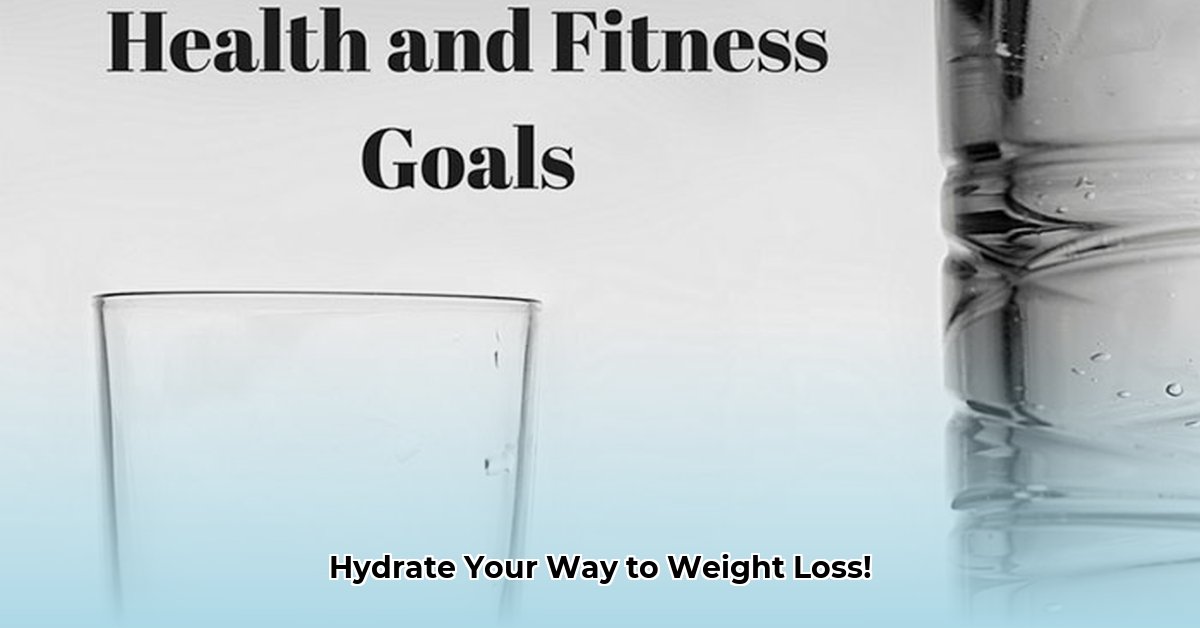
Inner Cellular Hydration and Weight Loss: Understanding the Science
Ever feel like you're doing everything right—eating healthy, exercising regularly—but the weight just won't budge? It might not be your diet or workout routine; it could be your cells' hydration levels. This article explores the science behind cellular hydration and its surprising impact on weight loss, providing actionable steps to boost your hydration and unlock your body's weight-loss potential.
The Cellular Sponge Analogy: More Than Just Water
Think of your cells as tiny, hardworking sponges. They need water, yes, but also electrolytes (minerals like sodium, potassium, and magnesium) and other nutrients to function optimally. Simply drinking lots of water might not be enough; your body prioritizes different needs, and if there are nutrient deficiencies, cellular hydration might be neglected, even if you are drinking ample fluids. This is like trying to fill a sponge already clogged with other substances—it won't absorb efficiently. Plain water, while crucial, can even leach minerals from your body if consumed excessively, ironically leading to cellular dehydration and metabolic slowdown.
Debunking the "Eight Glasses" Myth: Quality Over Quantity
The "eight glasses a day" rule is a broad generalization. Your hydration needs depend on factors like activity level, climate, and diet. Water quality also matters. Adding electrolytes, a squeeze of lemon, or even a small amount of glucose can significantly enhance cellular water absorption. Think of it like adding seasoning to plain pasta; it elevates the experience and improves how your body utilizes it. Consider electrolyte-enhanced drinks or electrolyte-rich foods (like bananas or spinach) to optimize hydration.
A Practical Guide to Supercharged Cellular Hydration
Here's a straightforward plan to boost your cellular hydration and support your weight loss goals:
Prioritize Whole Foods: Focus on fruits, vegetables, and lean proteins rich in electrolytes and essential minerals. These foods naturally promote cellular hydration.
Enhance Your Water: Experiment with adding electrolytes (available at most health food stores), a squeeze of citrus, or even molecular hydrogen-rich water (though research on the latter is still ongoing). This can dramatically improve your body's ability to absorb water at a cellular level.
Listen to Your Body: Don't solely rely on urine color. Pay attention to energy levels, skin condition (plump or dry), and overall feelings. These provide a more holistic assessment of your hydration status.
Sip Regularly: Drink water consistently throughout the day instead of consuming large amounts at once. Small, frequent sips maintain optimal hydration levels.
Minimize Processed Foods and Sugary Drinks: These often lack nutrients and can dehydrate your body, hindering efficient cellular function and potentially impacting weight loss efforts.
The Powerful Connection Between Hydration and Weight Loss
Studies suggest a strong correlation between increased water intake and weight loss. Improved hydration may boost metabolism, and some research indicates that better-hydrated individuals tend to consume fewer calories. Animal studies have even shown that increased water intake leads to reduced food intake and increased lipolysis (fat breakdown). However, more human research is needed to fully substantiate these findings. It is important to remember that cellular hydration is one piece of a larger puzzle, and a balanced diet and exercise remain crucial for weight management.
Beyond Weight Loss: The Broader Health Benefits
Emerging research links even mild, chronic dehydration to metabolic issues contributing to various health problems. This underscores the importance of optimal cellular hydration for overall well-being, extending far beyond weight management. A holistic approach, combining smart dietary choices and lifestyle modifications to support fluid balance, is crucial for maintaining long-term health and vitality.
Optimizing Cellular Hydration Through Diet and Electrolytes
Key Takeaways:
- Achieving optimal cellular hydration extends beyond merely drinking water; it involves a balanced approach.
- Electrolytes are vital for proper cellular water absorption and retention.
- Dietary choices significantly impact cellular hydration levels.
- Management of stress and EMF (electromagnetic field) exposure can positively influence hydration.
- Urine color alone is not a reliable indicator of cellular hydration.
Dr. Emily Carter, PhD, Registered Dietitian at the University of California, San Francisco, emphasizes, "Cellular hydration is a critical component of overall health and well-being, often overlooked in weight management strategies."
Maintaining optimal cellular hydration requires a holistic approach embracing lifestyle modification and dietary adjustments beyond simply increasing water intake. Remember, a balanced diet, regular exercise, and stress management form the cornerstone of a healthy lifestyle.